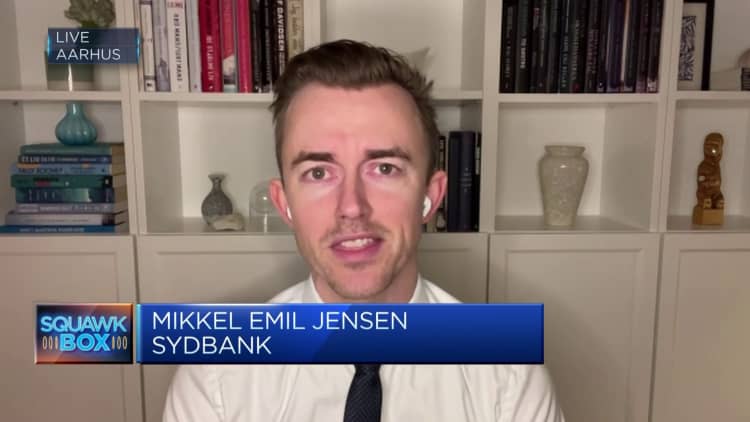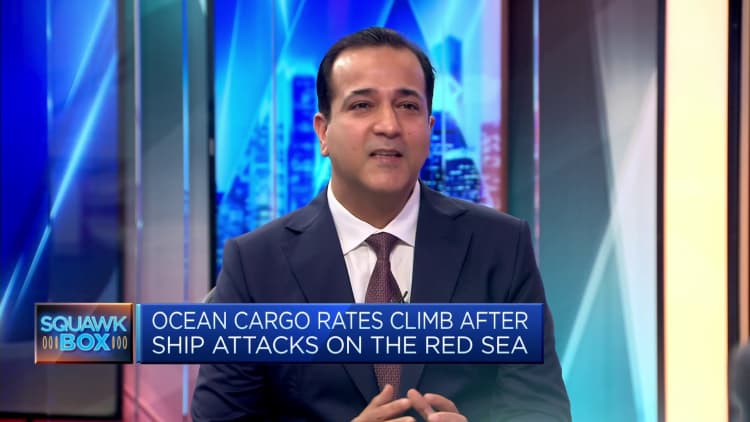
Ongoing disruption to trade flows through the Red Sea could hit global economic growth, the head of one of the world’s largest container shipping firms said Thursday.
Maersk CEO Vincent Clerc said it remained unclear whether passage through the waterway would be re-established in “days, weeks or months,” in comments first provided to the Financial Times and confirmed to CNBC.
“It could potentially have quite significant consequences on global growth,” Clerc said.
The company announced Friday its vessels would be diverted from the Red Sea — which provides access to Egypt’s Suez Canal, the quickest route between Europe and Asia — for the “foreseeable future.”
Vessels are instead traveling around the southern coast of Africa, which can add between two to four weeks to a Europe-Asia voyage, Clerc previously told CNBC.
Maersk further said this week that some inland transportations were facing delays due to a wave of strikes in Germany.
The seaborne diversions by Maersk and a host of other firms are due to a series of attacks on ships by Houthi militants from Yemen. The group’s leaders say they are responding to Israel’s bombing of Gaza.
Clashes have continued into the new year despite the launch of a U.S.-led military taskforce which has seen major powers send warships to the area.
Houthi militants this week launched the largest attack of the campaign so far.

Companies including Sweden’s Ikea have warned of potential product delays as a result, while freight rates are moving higher.
In a further sign of volatility in the region, an oil tanker was hijacked near the Gulf of Oman on Thursday.
The World Bank meanwhile said Tuesday that global growth is set to mark its worst half decade for 30 years.
Ayhan Kose, the group’s deputy chief economist, told CNBC that the world economy faced a host of risks, including escalations of conflict in the Middle East or the war in Ukraine.
— Additional reporting by Ruxandra Iordache

